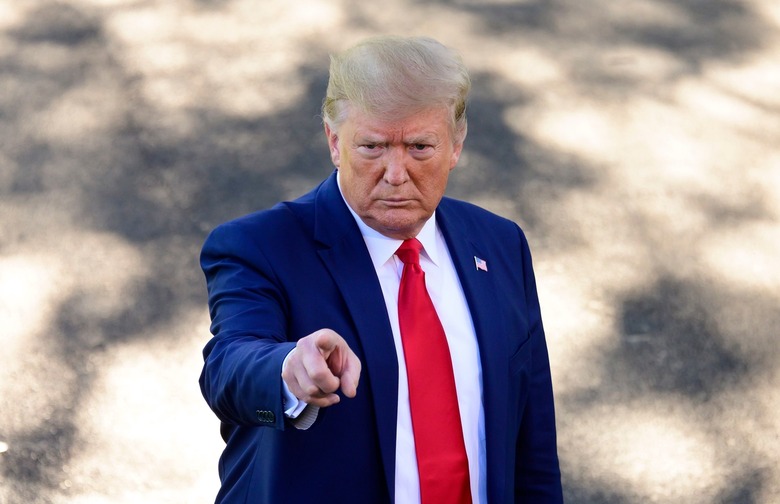Trump Demands Apple 'Step Up To The Plate' And Help The FBI Unlock A Terrorist's iPhone
The ongoing saga involving Apple, the FBI, and a pair of locked iPhones belonging to Florida mass shooter Mohammed Saeed Alshamrani shows no sign of slowing down anytime soon. If anything, the dispute appears to be intensifying with Donald Trump taking to Twitter late on Tuesday to weigh in on the issue.
"We are helping Apple all of the time on TRADE and so many other issues," Trump said in his characteristic style, "and yet they refuse to unlock phones used by killers, drug dealers and other violent criminal elements."
And because Trump is, well, Trump, he couldn't help but conclude his tweet with a sense of bizarre urgency.
"They will have to step up to the plate and help our great Country, NOW! MAKE AMERICA GREAT AGAIN."
Over the past two days, Apple and Attorney General William Barr have issued conflicting statements regarding Apple's efforts to help the FBI access information on Alshamrani's iPhones. Barr recently claimed that Apple hasn't provided any "substantive assistance" on the matter, a claim which Apple vehemently denies.
Apple's response to Barr's allegation reads in part:
We reject the characterization that Apple has not provided substantive assistance in the Pensacola investigation. Our responses to their many requests since the attack have been timely, thorough and are ongoing," the company said in a statement. "We responded to each request promptly, often within hours, sharing information with FBI offices in Jacksonville, Pensacola and New York. The queries resulted in many gigabytes of information that we turned over to investigators. In every instance, we responded with all of the information that we had.
The FBI presumably wants what it demanded a few years ago when a similar issue arose with an iPhone 5c which belonged to a terrorist involved in the 2015 San Bernardino shooting. There, the FBI essentially asked Apple to create a custom version of iOS that would allow the FBI to endlessly guess the device's passcode without initiating a system wipe. Apple flat-out refused and there's no indication the company plans to change its approach this time around.
Notably, the devices the FBI wants to access in this particular case include an iPhone 5 and an iPhone 7. That being the case, there's no reason to believe that the FBI couldn't access said devices by reaching out to a third-party security company like Cellebrite. In the San Bernardino investigation, if you recall, word ultimately surfaced that the FBI paid around $1 million for a workable iPhone hack.
